Talking about Truong Son is talking about the symbol of the will to win and the heroic spirit of the Vietnamese people during the years of resistance against the US to save the country. Every meter of Truong Son road has been soaked with the sweat and blood of countless heroes and martyrs. It is an honor and pride for us - the Quang Ninh Mining Artistic Team to have contributed a small part of ourselves to that legendary road.
When the resistance war against the US entered a fierce phase, in November 1968, Quang Ninh province established the Quang Ninh Mine Shock Art Team to serve the battlefields B2, B3, Group 559. Quang Ninh artists performed for soldiers, laborers, and youth volunteers in many places along the Truong Son road: on high points, in deep tunnels, performing on the roadside to see off soldiers on the march...
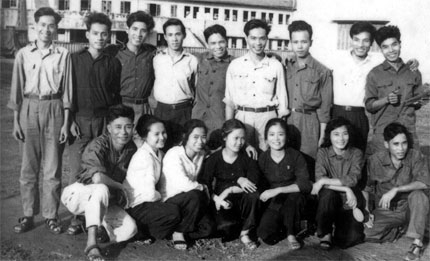
From the effectiveness of that trip, in early 1971, Quang Ninh province continued to send the second Quang Ninh Mine Shock Art Team to serve the battlefields B, C, K, Group 559. The team consisted of 16 artists and actors, including: Nhat Chinh (Team Leader), Dao Xan Pha (Deputy Team Leader), Minh Hue, Quang Tho, Ngoc An, Tran Thi Khanh, Tran Buong, Vu Kim Chung, Dang Bich Hanh, Nguyen Thi Thu Chung, Thuy Hai, Nguyen Duy Lang, Si Khu, Vu Thi Kim Lien, Pham Hong Van and me - Tat Tho.
More than 50 years have passed, now thinking back, I cannot forget Truong Son with its heavy, fierce rains. There were also rains that continued to drizzle day and night. The rain made the ground and grass rot, clothes were always wet and sticky. When talking about Truong Son, we cannot forget to talk about flies, mosquitoes, leeches... There were countless mosquitoes, some of them were very big. The bites they gave us were still itchy and painful the next day. There were green leeches, yellow leeches, black leeches, just by setting foot on them, dozens of them would cling on and never come off. But those things were still not as terrible, barbaric and cruel as the American imperialists at that time. All day and all night, Truong Son never stopped the sound of airplanes. Just hanging out a light-colored shirt to dry immediately made the shirt become the target coordinates of jet planes. On the hills they bombed, yesterday they were still green, the next day there were scattered tree trunks that had been slashed horizontally and vertically, the soil and rocks were turned red. “When it’s sunny, dive, when it’s raining, coordinate”, in a flash, before we could hear the planes, we could hear the bombs falling…
Only by telling these things can we fully understand the fierceness of the war and the sacrifices and hardships that our soldiers in Truong Son had to endure year after year, as well as the more than a year that our Mining Area Assault Artistic Team had to endure. We marched entirely on foot. That does not mean that the battlefield lacked vehicles or that the leaders did not provide vehicles for the team to travel, but only by walking like that could we reach all the jungle paths where the troops were stationed.
In the morning, when we woke up, we sometimes didn't have time to eat breakfast before we got the order to march. There were all sorts of things: blankets, clothes, hammocks, raincoats, props, costumes... Everyone's backpack was full and heavy. Thuy Hai, Bich Hanh, and Kim Chung, despite their ladylike appearance, had to carry heavy loads every day. After a few days, both their heads and shoulders were swollen. Seeing this, the men tried to share and help carry them, but the women refused. The hardships multiplied on rainy days when the marching happened. When it rained, the road was slippery as if it had been poured with grease, and there were many mosquitoes and leeches. Leeches crawled into Si Khu's hair and clung to Dao Pha's waist. One day, Quang Tho (now a People's Artist) saw his bra soaked in blood and realized he had just been bitten by a leech. Once, Minh Hue (later awarded the title of People's Artist, deceased) dropped a ball of rice but didn't dare pick it up because the rice had already been covered with leeches. In the team, Tran Buong and Thuy Hai were bitten the most by leeches (because they were short and... walked slowly).
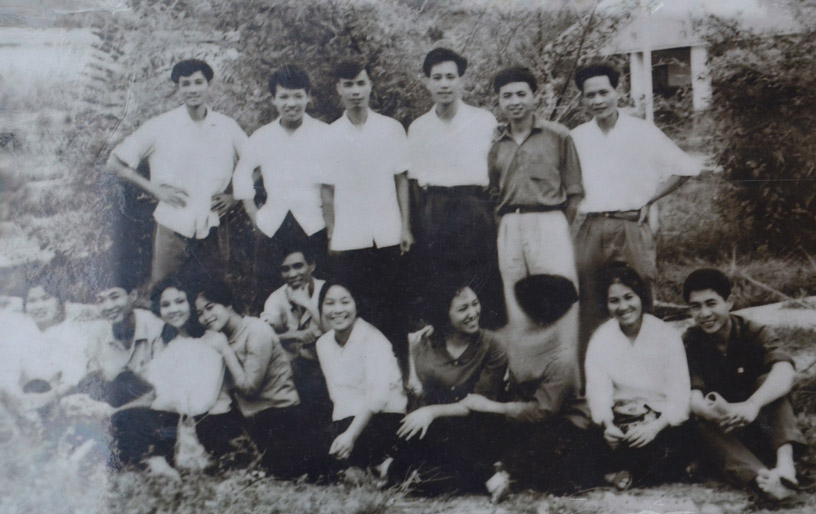
I remember the days of crossing rivers and streams. The Truong Son streams were suddenly full and the water kept pouring down like waterfalls. Should we turn back? No! Absolutely not because ahead, on the other side of the river, there was an entire army unit waiting for us. So we tried every way to cross. Sometimes we hung ropes across, and the women clung to them tightly to cross, sometimes three or four brothers accompanied one woman, looking like anthills. Many times after crossing, looking back at the stream or lying down at night, I realized how brave and daring we were.
In more than a year in Truong Son, we had to cross countless bomb craters and key points. There were days when the enemy had just finished attacking and we marched right past them. The bomb craters were deep and the smoke was thick and acrid. There were also days when we had only taken a few steps when bombs fell right behind us, rocks, branches and dirt flew everywhere, hitting us and our faces, causing excruciating pain. The most miserable days of the march were the days when the women had their period. Just by looking at their changing facial expressions, we could tell how anxious, uncomfortable and tired they were.
In the North, no matter how urgent or difficult the performance was, our eating and sleeping routines were still normal, but here everything was turned upside down. Sometimes we didn’t even finish eating before we started performing or marching. Often, we didn’t arrive until dark and had dinner. Sometimes we only had one meal a day. There was plenty of rice here to fill us up, and we didn’t have to mix it with noodles or corn (priority was given to the battlefield), but the food was irregular and rare. One time, the whole team went fishing, and after fishing all morning, we only caught 7 fish that were bigger than a finger. We cooked it into a pot of sour soup (cooked with galangal leaves) and divided it among 16 people. One day it was just a bunch of water spinach, another day it was a few bamboo shoots, or a handful of cassava leaves. The atmosphere at those meals was really happy.
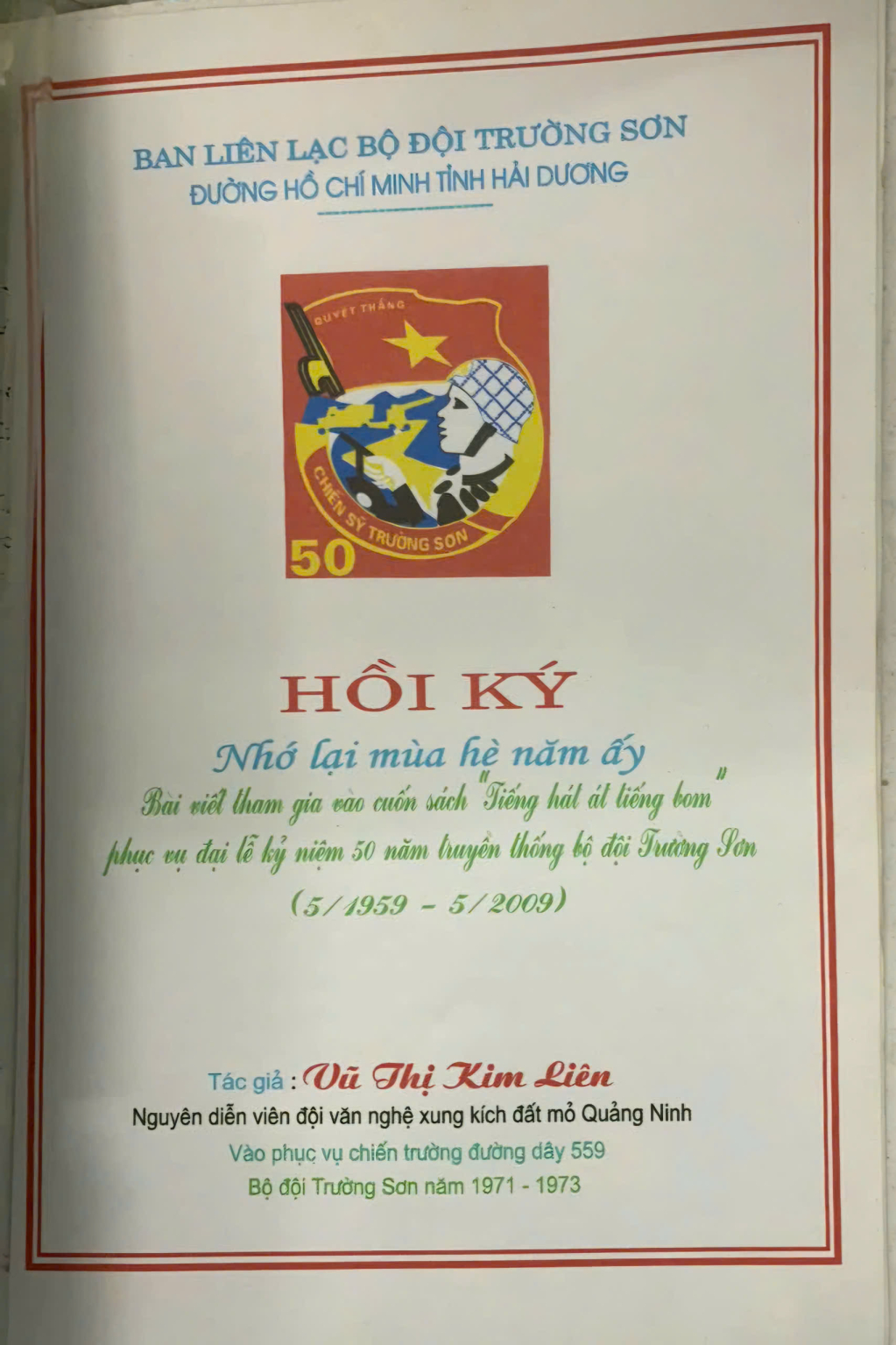
Usually, wherever the team went, the soldiers gave us their houses and huts to stay. The temporary floors made of bamboo or bamboo pieces were so painful that we had to lie down on them. There were also times when the new unit had not yet built houses, so all the soldiers and we had to sleep in hammocks in the middle of the forest. Sometimes, while we were sleeping, the order to march came, and we fell asleep as we walked. But the more difficult and arduous the situation was, the more deprived we were, the team was determined to stick close to the soldiers and serve. Once, a unit of only a few people was stationed deep in the forest, two or three days away from the team. Although it was not the team's main direction, when we learned that the unit was very eager to enjoy the arts, the team immediately called the Command Headquarters to ask to serve right away. As soon as we reached the top of the slope, sweating profusely, we met a team of engineers breaking rocks to make a road. Bich Hanh smiled: "Hello, guys!". "Yes, hello, comrades!" A cunning soldier asked: “So pretty, are you guys artists?”. “Yes!”. “Then sing for us!”. So Hanh started singing again, although she was not a singer or dancer, Hanh sang, singing one song after another.
A unit had received orders to march to the inner front, but when they heard that there would be a performance, they asked for and were allowed to stay for a day to welcome and watch the performance. That day, it was pouring rain, but we still marched urgently. When we reached a bend in the river, everyone had to stop. Looking at the wide river with the fast-flowing water, we looked at each other. What should we do? We had to get across by any means! Hong Van, Quang Tho, and Nhat Chinh took off their clothes and jumped into the river to check the water level, then turned back to instruct everyone to spread out their raincoats, put away all their clothes, props, and musical instruments, and tie them tightly. The men crossed first, carrying their bags, then returned, three men with one woman. Bich Hanh was helped across first, but as soon as she reached the middle of the river, she was swept away by the current. Hong Van and I tried our best to pull Hanh back but couldn't. In the blink of an eye, Hanh was sucked into the whirlpool. Duy Lang and Quang Tho jumped down from the bank. Luckily, if we had been a little bit later, Hanh would have hit her head on a rock. We arrived at the unit in the evening, the commander shook hands with each person, moved. That night we organized a performance right away. Bich Hanh sang enthusiastically, the program did not miss a single performance.
Another time we went to serve a unit that had just moved in, there were no houses yet, the soldiers had hammocks lying around under the forest canopy. Seeing us, many comrades shouted, “Ah! The artists, the artists have arrived, guys!” Then they gathered around us. The unit commander was concerned: “I am very touched and grateful that you came to us. But honestly, the unit has not built a house yet, and the food has just run out.” “Don’t be shy, guys! You treat us like family,” Kim Chung said, smiling. Then, the whole team and the soldiers rolled up their sleeves to build a shelter, just enough space for the performance, while the soldiers stood watching in raincoats. It was raining heavily, the rainwater flooded in, turning the “stage” into a flooded field, but we still sang very enthusiastically, the audience was still engrossed and enthusiastic. Usually, performances like that are very touching.
The most touching were the performances for the wounded soldiers. We often went to each hospital bed to sing. Every song was requested to be sung over and over again by the comrades. There were comrades who had lost an arm or a leg, and when they cheered, their healthy hand would pat their remaining thigh. There were comrades whose eyes could no longer see, but their faces were still bright, listening to every word of the song. We often reminded each other that when we went to the battlefield, to the soldiers, we had to bring all our enthusiasm, but our performances had to be constantly improved, because after all, the team was a professional art unit, representing the artists of Quang Ninh province.
Truong Son is full of hardships and challenges, but that doesn't mean Truong Son doesn't have its charms. A towering hill, green trees, white clouds wrapped around like a silk ribbon, isn't it poetic? Many days the clouds descend to the foot of the hill, covering the stream, spreading across the road, swirling around our feet, as if supporting our steps. Here there are beautiful forests of cassia trees. The cassia trees are white, with few small branches, just a straight, towering shape, the canopy covering the entire sky. In Truong Son, there are streams that are also roads for cars, making American pilots die without being able to detect them. Cars running under the streams splash white water. How beautiful are the bridges crossing the streams. Many days ago, a forest appeared before our eyes, a valley appeared, the undulating mountain peaks followed one another smoothly like a velvet carpet. Once, after passing a high mountain slope, we came across a forest entrance, the wind was so cool, without anyone telling us, we all stopped, everyone took off their hats to welcome the wind. Someone behind me said, “Oh! How I miss the mine and the furnace so much.” I turned around and it was Quang Tho. It wasn’t just Quang Tho, everyone said the same thing. At times like these, we missed the mine so much.
Truong Son has many beautiful, interesting and poetic things. But the most beautiful and precious are still the people of Truong Son. Rain, wind, high passes, steep slopes, mosquitoes, bombs and bullets, but no one is shaken or discouraged. Our roads are still open, our vehicles are still full of goods running straight to the inner line. In every forest, every stream, there are laughter, voices, singing, shouting, the sound of mines breaking rocks, the sound of hammers and anvils. Wherever we go, we meet heroic groups and heroic people. They are brave and resilient people who have achieved many glorious feats, but their lives are very simple and always very lively and cheerful. Once we passed a key point, the enemy dropped B52 bombs, the smoke of the bombs was still billowing, we tried our best to run quickly past the dangerous place, but when we reached the top of the hill, we saw a motorbike calmly working. The driver was very young, smiled brightly and waved. The whole team was impressed and admired his courage. We arrived at the engineering company, stationed on Hill X. There were so many bombs and bullets here that most of the units were under pressure, the most people were 7 times, the least people were 2 times, but month after month they still volunteered to stay at the peak. The sound of bombs stopped, then came the sound of excavators, hoes, shovels mixed with singing. It was true that in Truong Son, all iron and steel melted, only people remained strong.
There are so many people and events like that on the Truong Son range that I cannot possibly tell you all. The most touching thing was when I met my fellow countrymen from Quang Ninh. Brothers who had been away from home for many years and now met their fellow countrymen were overjoyed. Every comrade was honest, gentle and brave. An engineering unit was all from the East. Comrade Hop in Dam Ha was a competitive soldier for many years. Comrade Phan in Ba Che was a determined soldier. Many soldiers in Hon Gai and Cam Pha, after watching the team's performance, jumped up and hugged us and cried: "You guys made us so emotional. We miss the mines and the coal layers so much that we are aching." Brother De was from Dong Trieu, the brother-in-law of Thanh Bieu, a musician from the Cai Luong troupe. When he heard that the troupe was coming to serve the unit, he was given a package of Thanh Huong tea, which had been 2 months ago, but he still wrapped it up carefully and kept it carefully until the team arrived before opening it to receive us.
Wherever we went, we were warmly and friendly welcomed. Many units even organized hunting and fishing trips for us to improve our living. Meanwhile, I noticed that the soldiers' meals consisted of only dried floss and a little taro soup. Seeing that, I felt embarrassed and did not dare to pick up food. Many units even made new clothes. for sisters. Usually the farewells are the most memorable. The soldiers fought so bravely, against such a fierce enemy, but when they said goodbye to us, many of them could not hold back their tears. At times like that, we did not want to leave.
At the end of the trip, the Quang Ninh Mining Workers' Artistic Team was awarded the Second Class Resistance Medal by the State, many medals for individuals and many other noble awards.
More than half a century has passed, and now half of the brothers and sisters in the team have returned to dust. As for me, dioxin still torments me every day, but every time I think of Truong Son, so many memories come flooding back with joy and pride because those days were the time when I felt most worth living.
Notes of Tat Tho
Source



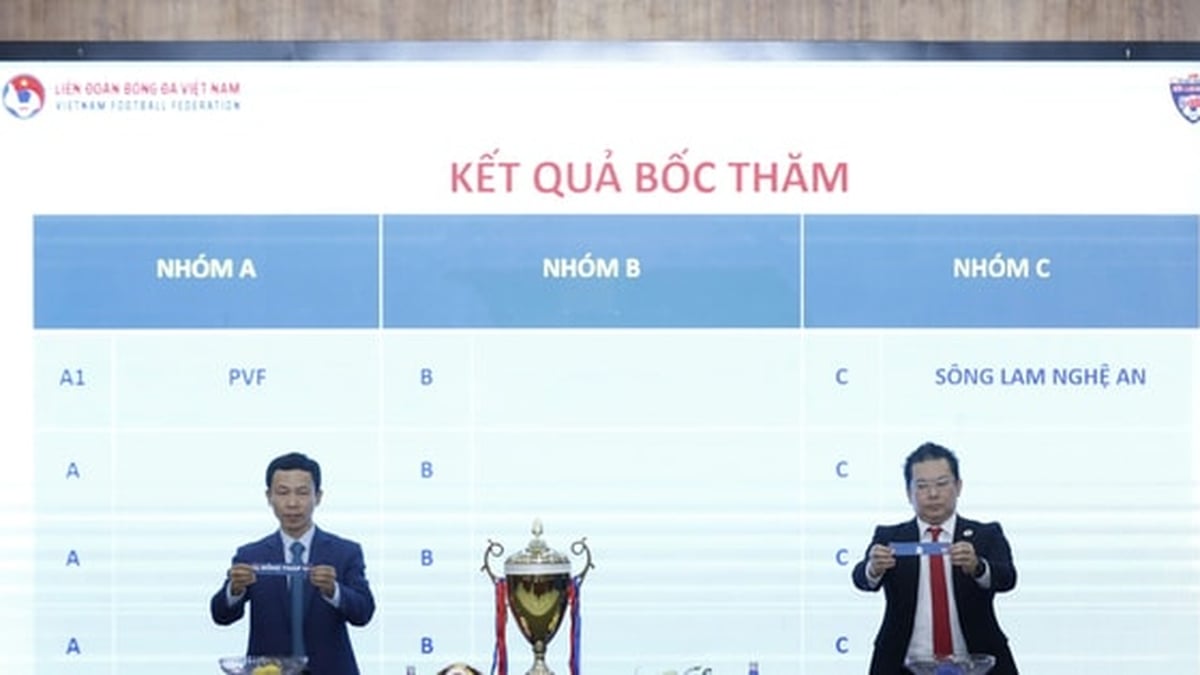
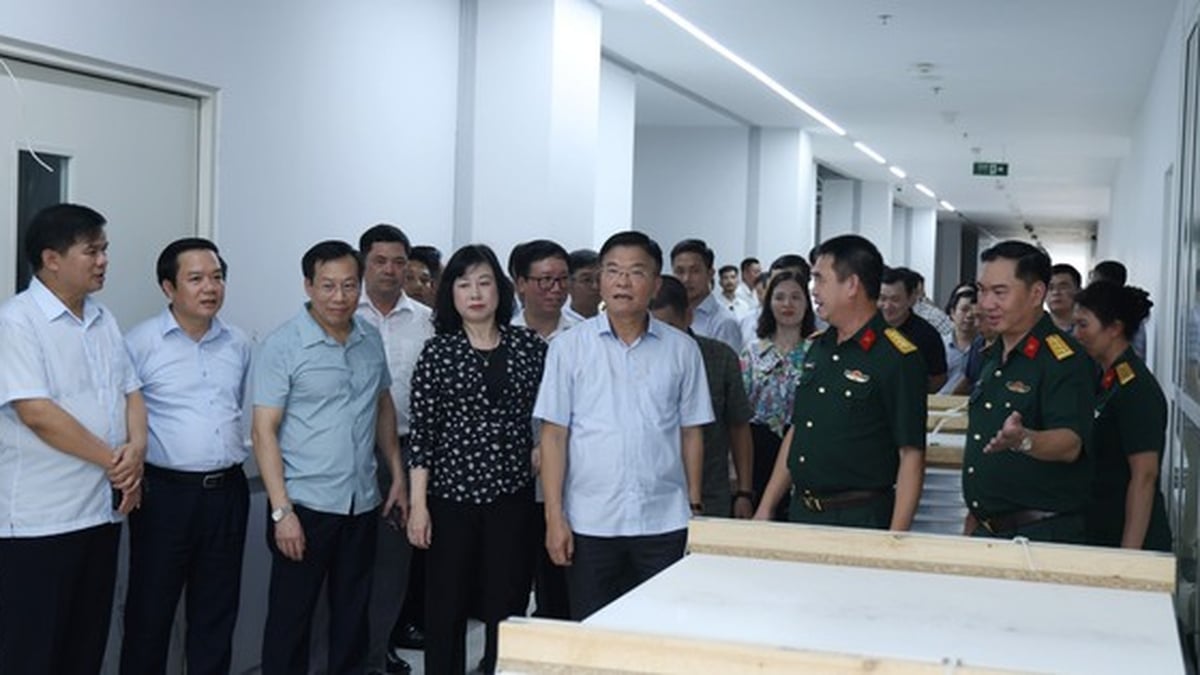
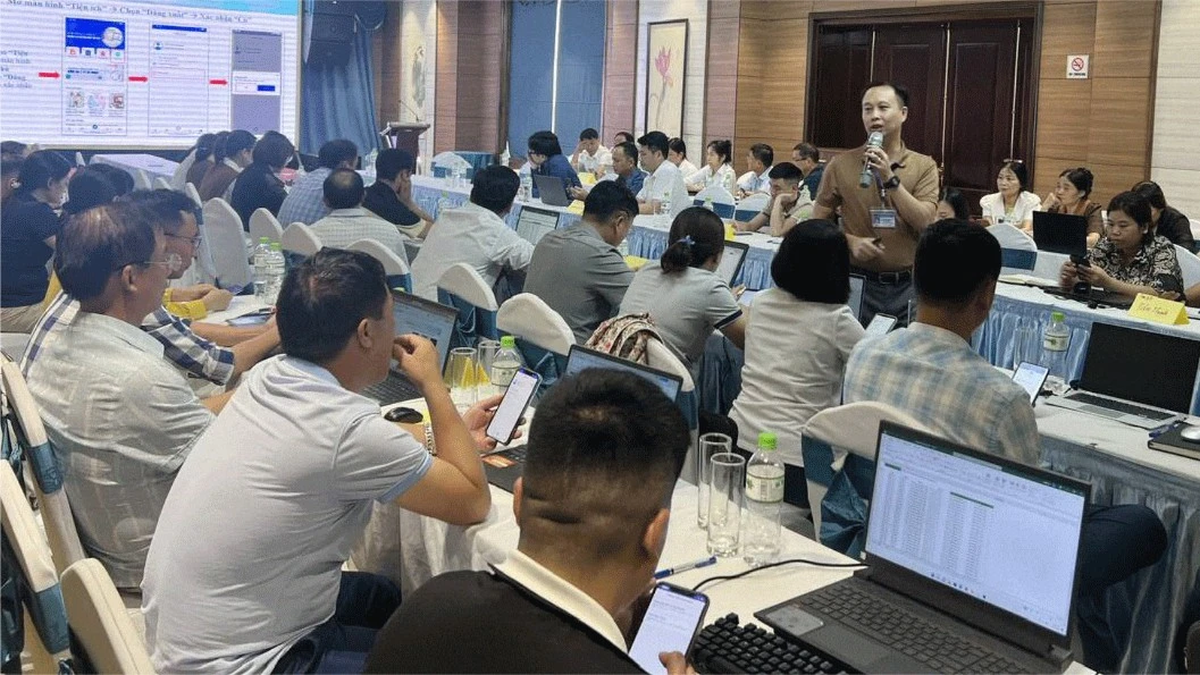

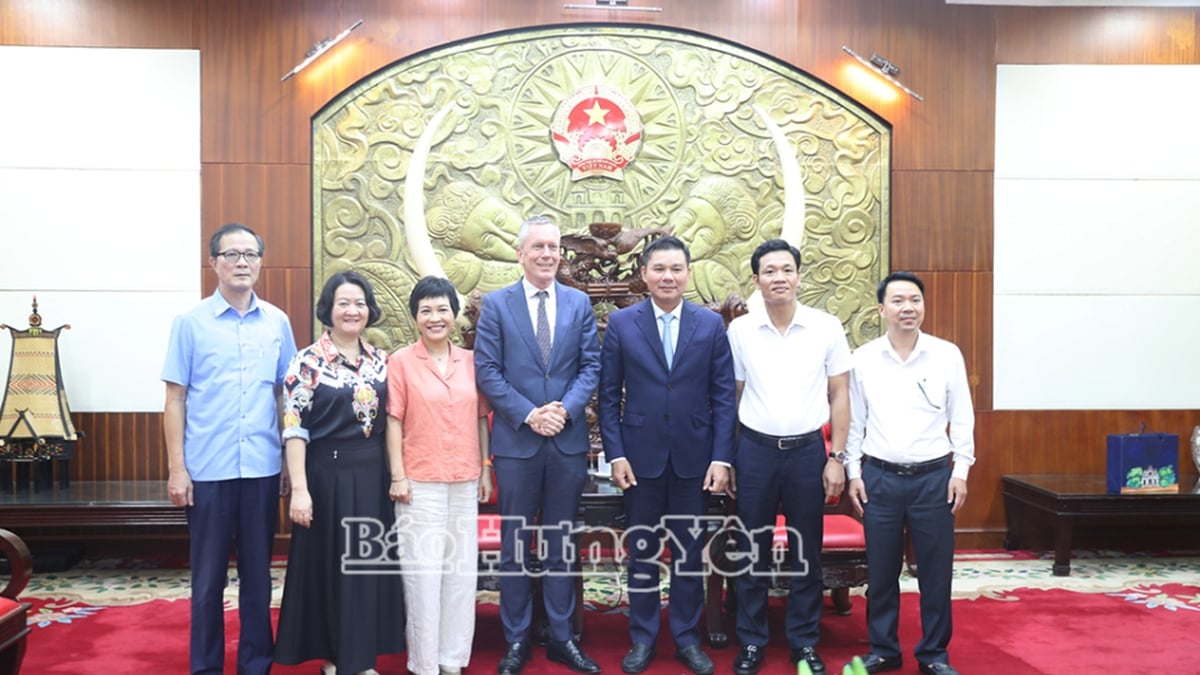

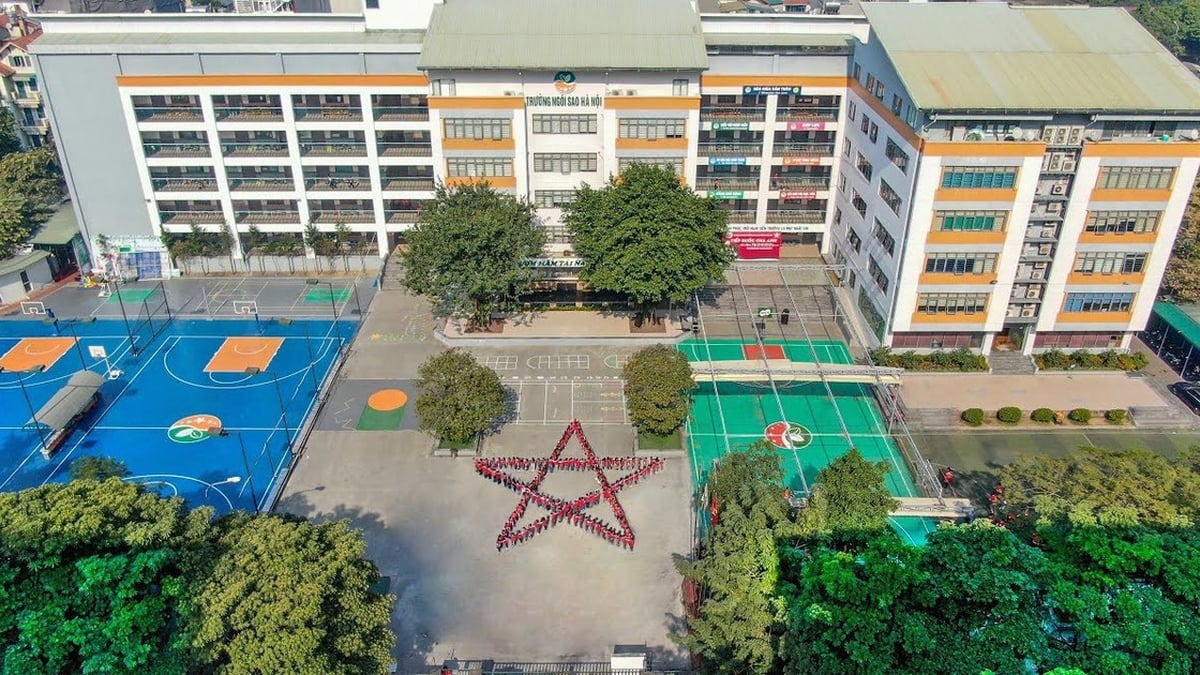
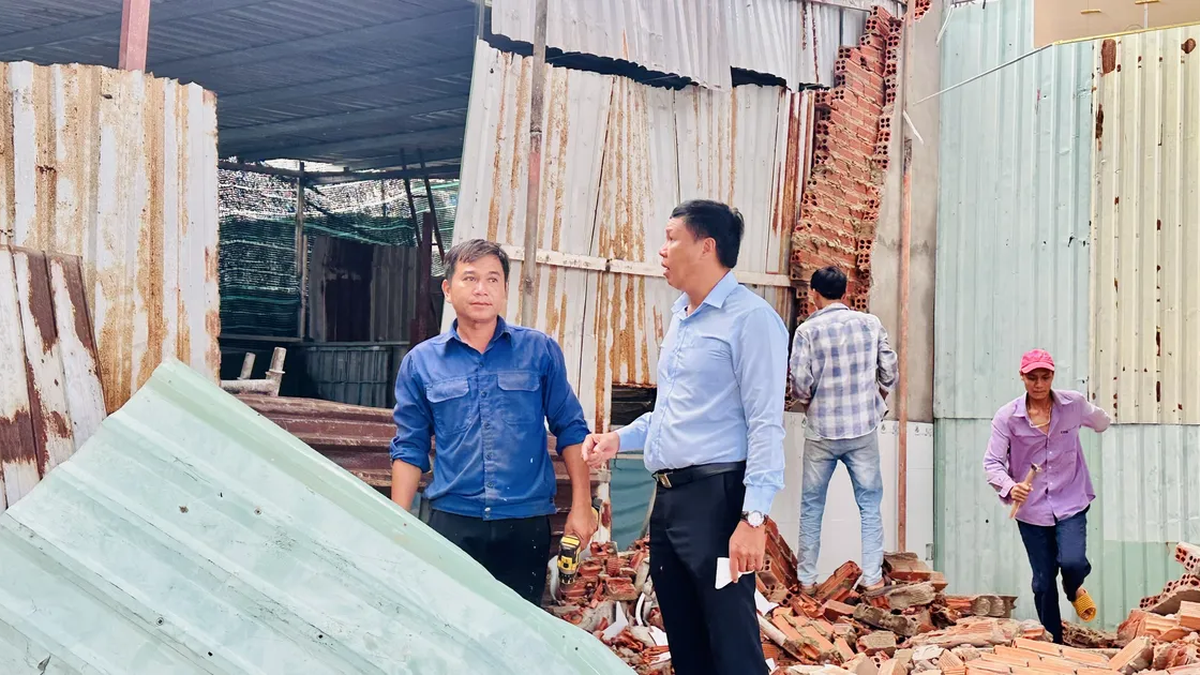
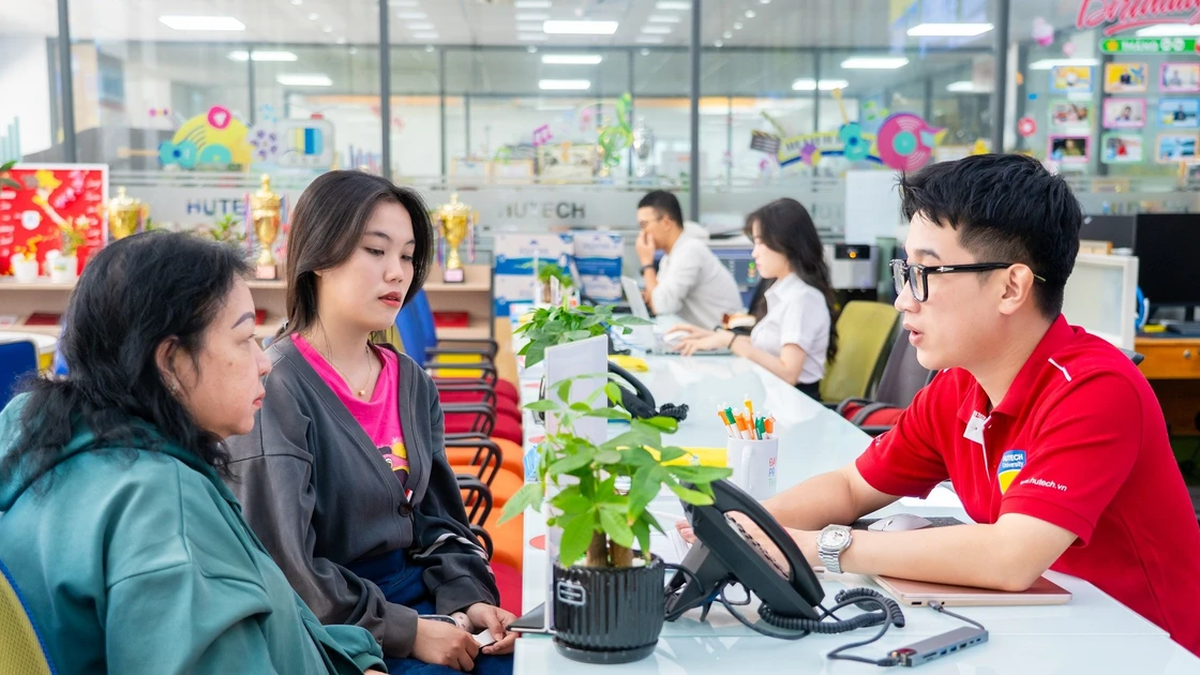








































![[Maritime News] More than 80% of global container shipping capacity is in the hands of MSC and major shipping alliances](https://vphoto.vietnam.vn/thumb/402x226/vietnam/resource/IMAGE/2025/7/16/6b4d586c984b4cbf8c5680352b9eaeb0)
















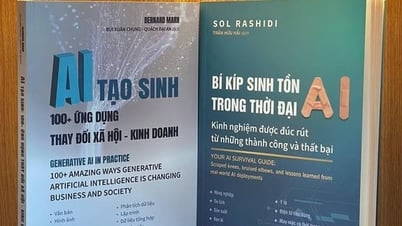


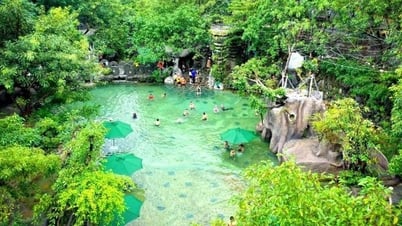























Comment (0)